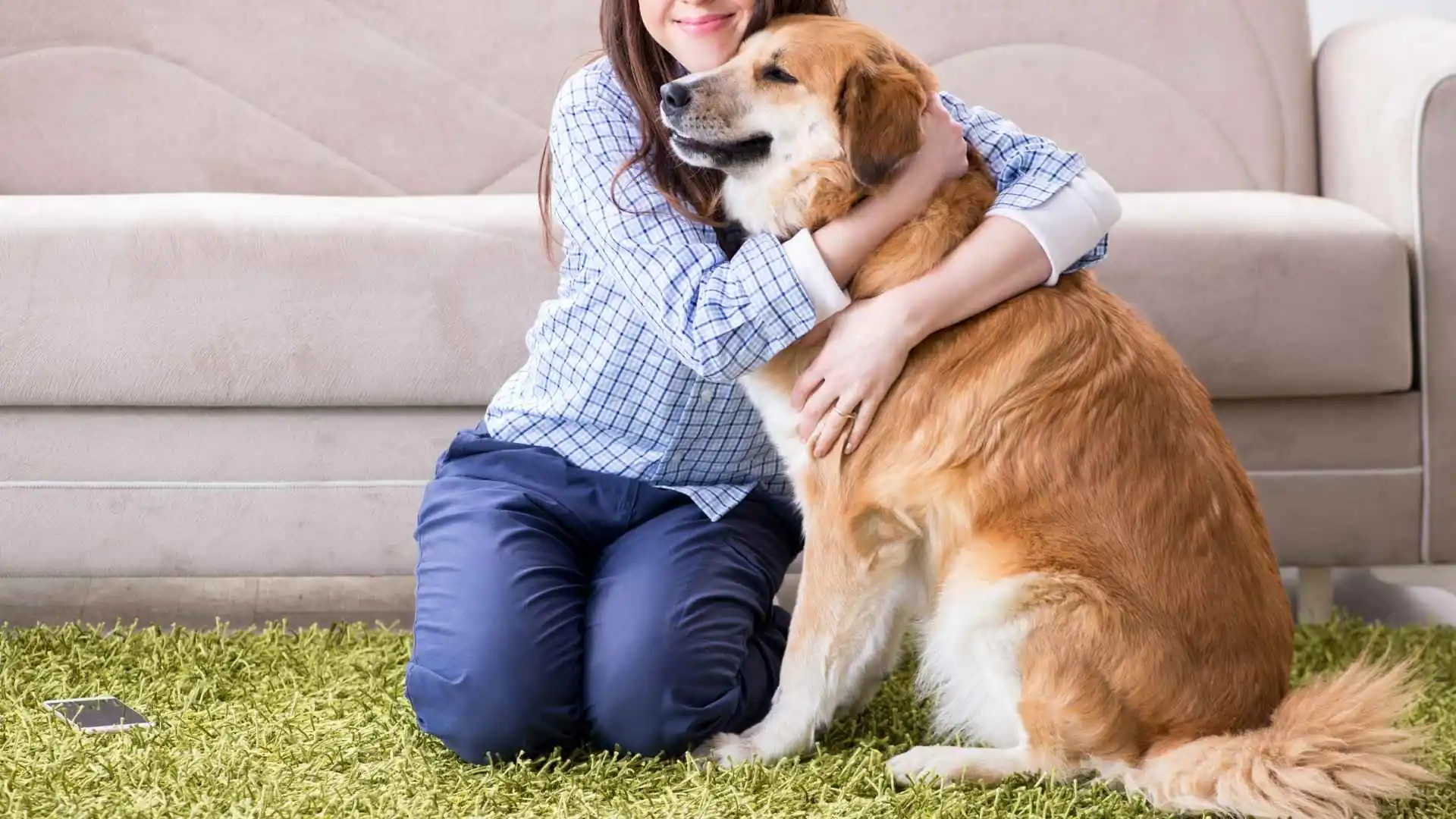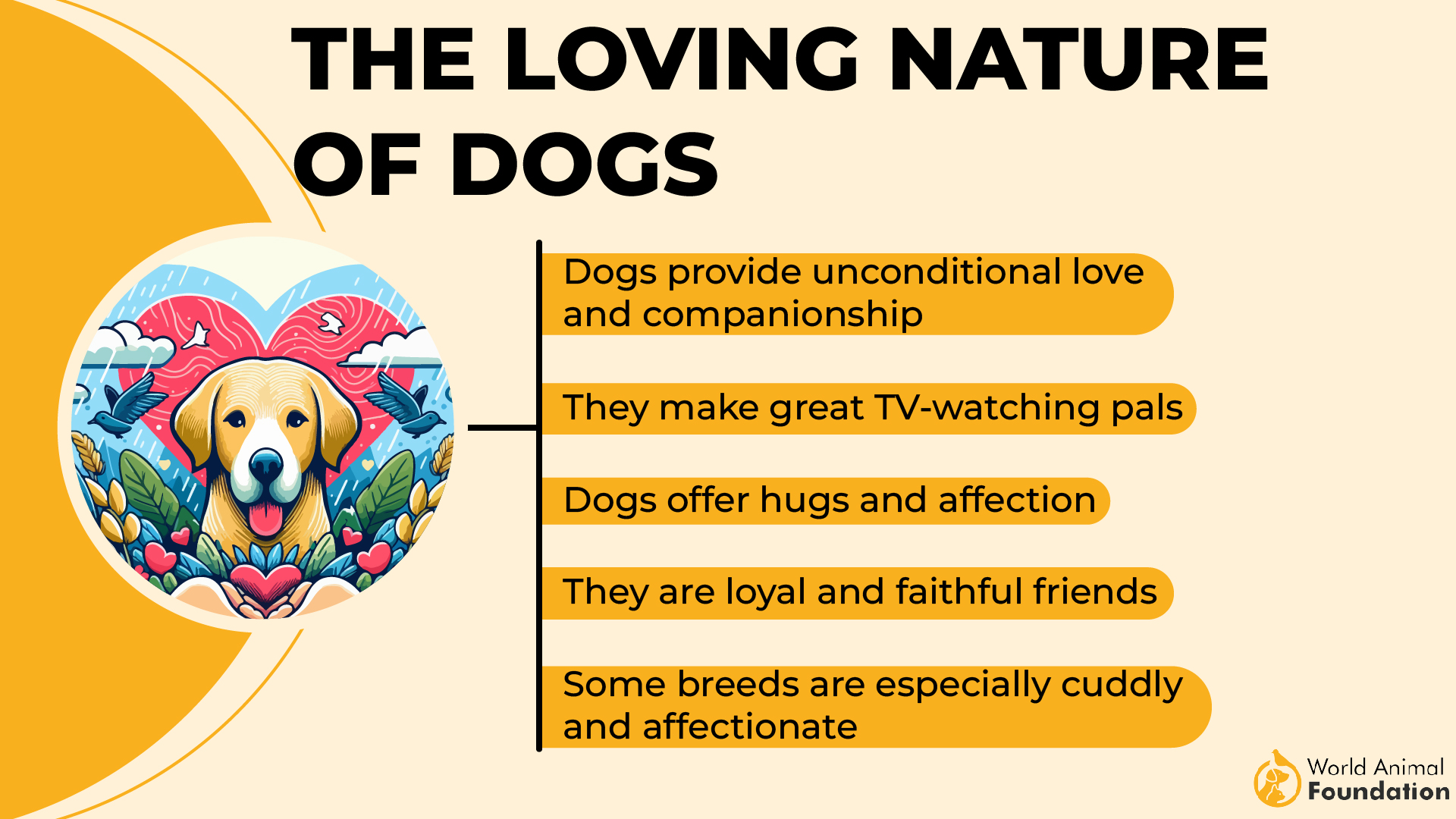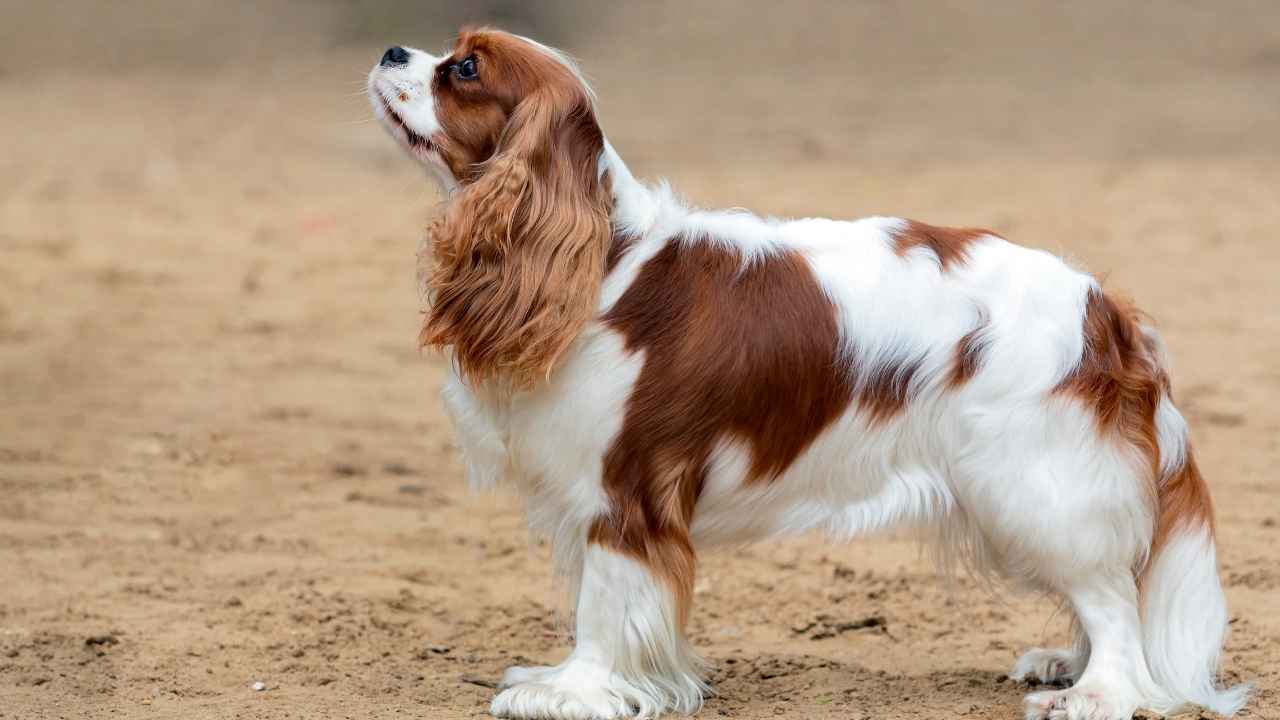In a world where emotional well-being is more crucial than ever, our four-legged companions offer unparalleled comfort and companionship. Dogs have an innate ability to sense our emotions, providing unwavering support and unconditional love. As emotional support animals, they play a vital role in helping individuals cope with anxiety, depression, and other emotional challenges. But with countless breeds to choose from, finding the ideal partner can be daunting. Discover the seven best dog breeds renowned for their exceptional capacity to nurture and soothe, each one offering a unique blend of empathy, loyalty, and affection to help you thrive emotionally.
Dogs have long been cherished for their unconditional love and unwavering companionship, but certain dog breeds possess characteristics that make them exceptional emotional support animals. Unlike service dogs, emotional support dogs don’t require specific training to perform tasks, yet their ability to provide comfort and therapeutic benefits is undeniable.
Research shows that 74% of pet owners report mental health improvements simply by having a dog in their lives. For individuals facing anxiety, depression, or other emotional needs, the right emotional support dog can make a profound difference. From hypoallergenic coat options to varied grooming requirements, different breeds cater to unique lifestyles and emotional needs.
Whether you’re drawn to highly trainable herding dogs or a small size that makes Chihuahuas a perfect fit for apartments, this guide explores breeds with diverse personality traits and characteristics. Read on to find your next companion, providing support and joy tailored just for you.
What is an Emotional Support Dog?
An emotional support dog is a specific dog whose primary role is to provide emotional comfort and companionship to individuals with mental health challenges, such as anxiety, depression, or post-traumatic stress disorder (PTSD).
Unlike service animals, which undergo specific training to perform tasks for individuals with physical disabilities, emotional support dogs don’t require extensive training. Instead, their calming presence and ability to sense human emotions make them invaluable.
Licensed mental health professionals often recommend emotional support animals to individuals who benefit from therapeutic benefits like reduced stress and increased feelings of safety. Emotional support dogs come in all shapes, sizes, and breeds, as their ability to connect with their owner is more important than specific characteristics.
Whether it’s a mixed breed or a highly trainable purebred, the bond with an individual dog is what truly makes these companions so special.
Best Dog Breeds for Emotional Support
1. Cavalier King Charles Spaniel
Cavalier King Charles Spaniels are the epitome of an affectionate emotional support dog. Their silky coat and expressive, soulful eyes seem to understand human emotions profoundly, making them excellent emotional support animals claims PetMD. These small-sized dogs typically stand 12–13 inches tall and weigh 13–18 pounds, fitting well into various living spaces.
Their gentle and affectionate nature makes them great emotional support animals for people with anxiety and depression. Regular grooming is a must to maintain their beautiful coat, but they repay the effort with unwavering companionship. Highly intelligent, they are quick learners, although their sensitive temperament responds best to positive reinforcement.
Fun fact: Cavaliers were the lapdogs of royalty, bred to provide comfort and joy in stressful situations. Their calming presence and ability to sense emotions make them the right dog breed for those needing constant, gentle support.
2. American Staffordshire Terrier
American Staffordshire Terriers are proof that strength and tenderness can coexist. With their muscular build, standing 17–19 inches tall and weighing 40–70 pounds, these affectionate dogs provide emotional support through their strong bonds with their owners as praised by Britannica.
Despite their reputation as working dogs, they are incredibly loving and thrive on companionship, making them excellent emotional support dogs for people facing post-traumatic stress disorder or chronic stress. Their short coat requires minimal grooming, but their energy levels demand regular physical activity. Proper training is key, as their intelligence can make them independent thinkers.
Did you know they’ve been known as “nanny dogs” for their gentle nature with children? This trait makes them an ideal emotional support dog breed for families or individuals seeking a loyal and affectionate companion.
3. Poodle
Poodles are hypoallergenic emotional support dogs that combine elegance with intelligence. Available in standard, miniature, and toy sizes, they adapt effortlessly to various living situations says PDSA. Their curly coat, while hypoallergenic, requires regular grooming to prevent tangling.
Known for their highly intelligent and trainable nature, Poodles excel in providing emotional support for those with mental health conditions. Their calm demeanor makes them particularly suitable for stressful situations, while their energetic and playful personality traits bring joy to any household.
Interestingly, Poodles were originally bred as water retrievers, which explains their athleticism. Whether you need mental stimulation or an active partner, Poodles stand out as one of the best dog breeds for emotional support.
4. Shih Tzu
Shih Tzus are affectionate dogs with a gentle nature that suits them perfectly as emotional support animals. These small-sized companions, weighing 9–16 pounds and standing 9–11 inches tall, are ideal for apartments or smaller living spaces notes The PetPlan. Their thick coat requires regular grooming, but this routine offers an excellent bonding opportunity.
Shih Tzus are less physically demanding than other breeds, making them suitable for individuals with limited energy levels. Known for their friendly and gentle nature, they provide unconditional love and a calming presence to ease mental health issues like anxiety or panic attacks.
Did you know these beautiful dogs were bred as companions to Chinese royalty? Their long-standing role as comforting lapdogs cements their place among the best emotional support dogs.
5. Labrador Retriever
Labrador Retrievers, one of the most popular dog breeds worldwide, are affectionate, intelligent, and easygoing—perfect qualities for an emotional support animal. Standing 21.5–24.5 inches tall and weighing 55–80 pounds, they are larger breeds known for their friendly and affectionate natures.
Labs require regular grooming for their double coat and benefit from consistent physical activity to match their energetic personality traits. Their high trainability and willingness to please make them ideal emotional support dogs, especially for those facing mental health conditions like depression or PTSD.
Fun fact: Labs were originally bred as herding dogs and retrievers for fishermen. Their loving nature and ability to provide comfort and companionship make them a new family member who can brighten anyone’s life admired by the Kennel Club.
6. Pug
Pugs are small in size but large in personality, with their wrinkled faces and expressive eyes instantly bringing joy. Weighing 14–18 pounds and standing 10–13 inches tall, Pugs adapt well to various living spaces, making them a good emotional support dog for apartments as per Omlet.
Their short coat requires minimal grooming, but they need moderate exercise to maintain a healthy weight. Pugs are affectionate dogs with a gentle temperament, perfect for providing emotional support to individuals with anxiety or panic attacks.
A fun trivia: Pugs were once considered royal dogs in China. Their ability to sense emotions and provide a calming presence makes them one of the best emotional support dog breeds for people needing a loyal, affectionate companion.
7. Golden Retriever
Golden Retrievers are synonymous with unconditional love and a calming presence. These large dogs, standing 21.5–24 inches tall and weighing 55–75 pounds, are highly intelligent and trainable, making them excellent emotional support dogs.
They require regular grooming for their thick, golden coat and benefit from daily exercise to match their energetic yet gentle nature. Goldens are particularly beneficial for those with mental health conditions like PTSD or chronic stress, thanks to their ability to sense emotions and provide unwavering companionship.
Did you know Golden Retrievers are also popular service dogs due to their adaptability and right temperament? Their friendly and affectionate nature makes them ideal emotional support animals for families or individuals seeking a loyal partner in life’s ups and downs.
Conclusion To help you choose The best Emotional support animal
Choosing the right emotional support dog is a deeply personal decision, as certain breeds cater better to specific needs and lifestyles. Whether you need a calming presence, companionship, or assistance with your emotional well-being, it’s essential to consider different personality traits when selecting the ideal companion.
Yorkshire Terriers, for instance, are a perfect example of how a small size makes them adaptable to various living spaces while still providing immense emotional comfort.
While emotional support dogs don’t perform specific tasks like service animals, their ability to connect emotionally and provide relief is unparalleled. However, it’s important to remember that some breeds are prone to certain health issues, requiring attentive care.
With the right choice, an emotional support dog can offer unparalleled therapeutic benefits and unconditional love. Embrace the opportunity to find a loyal companion who fits your needs and enhances your mental well-being.
In conclusion, selecting the right dog breed for emotional support and comfort can significantly enhance one’s well-being and quality of life. Each of the seven breeds highlighted—renowned for their gentle demeanor, loyalty, and empathetic nature—offers unique benefits suited to various individual needs. Whether seeking the cuddly companionship of a Golden Retriever or the calming presence of a Labrador, understanding the distinct characteristics of these breeds fosters a stronger, more supportive human-animal bond. Ultimately, the ideal emotional support dog complements one’s lifestyle and emotional needs, providing indispensable companionship and solace in times of distress.









